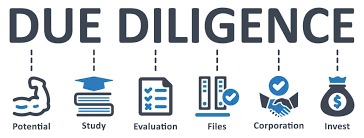

"The value of due diligence isn’t in its findings, but in the confidence it gives you to move forward, knowing you've accounted for every possibility."
Due Diligence
Financial Due Diligence
Review of financial statements, revenue, profit margins, cash flows, debt, and projections.
Assess the company’s financial stability and performance trends.
Tax Due Diligence
Verify compliance with tax laws.
Identify potential tax liabilities or disputes.
Legal/Corporate Due Diligence
Review of contracts, intellectual property rights, pending litigations, and corporate structure.
Ensure proper licenses and regulatory approvals are in place.
Operational Due Diligence
Evaluate internal processes, supply chain, production capabilities, IT systems, and human resources.
Identify operational risks and efficiency gaps.
Commercial/Business Due Diligence
Analyze market position, customer base, competitors, and growth potential.
Assess business model sustainability.
Environmental & Regulatory Due Diligence
Check compliance with environmental laws and industry-specific regulations.
Why Due Diligence?
Investors and Venture Capitalists
Before investing in a startup, company, or project.
Ensures they understand risks, valuation, and growth potential.
Acquirers / Buyers (M&A Context)
Companies or individuals buying another business.
Verify financials, operations, legal compliance, and liabilities.
Lenders / Banks / Financial Institutions
Before approving loans or credit.
Assess repayment capacity and collateral value.
Company Boards and Management
When considering strategic partnerships, mergers, or large contracts.
Protects shareholders and ensures corporate governance.
Legal and Compliance Teams
Ensure all regulatory, contractual, and legal obligations are met.
Identify potential litigation or compliance risks.
Auditors and Chartered Accountants
Conduct financial, tax, and operational reviews.
Provide independent assurance on the business’s health.
Individual Professionals or Buyers
For personal transactions like real estate, high-value purchases, or investments.
Verify authenticity and prevent fraud.
